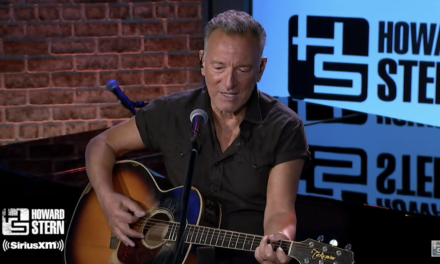I liked the final question of the October Democratic Debate.
There, I said it.
In fact, I hope the impressive moderator quartet of Andrea Mitchell, Rachel Maddow, Kristen Welker and Ashley Parker have the guts to ask the quirky question in this week’s debate.
After three hours of listening to presidential candidates substantively articulate policies, defend choices, tout records, and sometimes argue, in October this was a welcome ending courtesy of Anderson Cooper:
“Last week, Ellen Degeneres was criticized after she and former President George W. Bush were seen laughing together at a football game. Ellen defended their friendship, saying, ‘We’re all different and I think that we’ve forgotten that that’s OK, that we’re all different.’ So in that spirit, we’d like you to tell us about a friendship that you’ve had that would surprise us and what impacts it’s had on you and your beliefs.”
No, this is not a climate change question, as the critics decried. And I would never suggest it’s as important as that.
However, we have had some debates already and there are more slated and they are not all going to include every vital issue of our time. We can learn all we need to know about the candidates’ stances on climate change and more by clicking on their websites and reading. In fact, one could argue we’ll get a better understanding that way than by waiting for a 75-second debate response under the glaring lights of television.
Don’t get me wrong. I enjoy debates and see their value. As a professional coach trained to listen, I pick up a lot from body language, what is spoken, what is unspoken.
But guess what? I also pick up a lot from quirky questions.
As a coach and a journalist, I have been pleasantly surprised many times by an answer I received to a less-than-conventional question.
In a book called The Artist’s Way by Julia Cameron, billed as a spiritual guide to creativity, she puts forth questions at the end of each of her 12 chapters. When taught as a course, I have found the most revealing aspects of students’ lives come from questions that feel light or conversational as opposed to inquisitive. Some examples:
~ If you had five other lives to lead, what would you do with each of them?
~ List five people you admire. Now list five people you secretly admire.
~ Honestly, what would you most like to create?
I’m not necessarily suggesting we go this route in a presidential debate – or maybe I am – but I can tell you that we would learn who feels comfortable stepping away from policy and seriousness for five minutes. In that span, we could get a glimpse of whimsy, spontaneity, rigidity, lightheartedness, passion, creativity, humor, and the ability to be multi-dimensional.
Our current commander-in-chief rarely laughs and places little value on anything outside of the winning/losing paradigm. His off-the-cuff riffs are often used to divide and mock. Wouldn’t it be nice to get a sense of the person who wants to replace him?
Cooper’s question wasn’t going to evoke a canned answer. Candidates wouldn’t have prepared for it. We got to see them think on their feet and decide whether to be forthcoming or safe. We got a peek at their values, at their ability to be reflective. Personality is meaningful when choosing a candidate. It’s not everything, but it certainly isn’t something to be scoffed at.
As we project our own interests, experiences and sensibilities on to these debates, we get to see what resonates and even what triggers. That a non-policy question seemed to draw so much criticism feels like we’ve gotten so serious we can’t abide a bit of light.
But haven’t we reached a point where a little sliver of sun coming through the blinds is welcome? Roughly 10 of 180 minutes were spent on friendship.
Relax and let it in.





